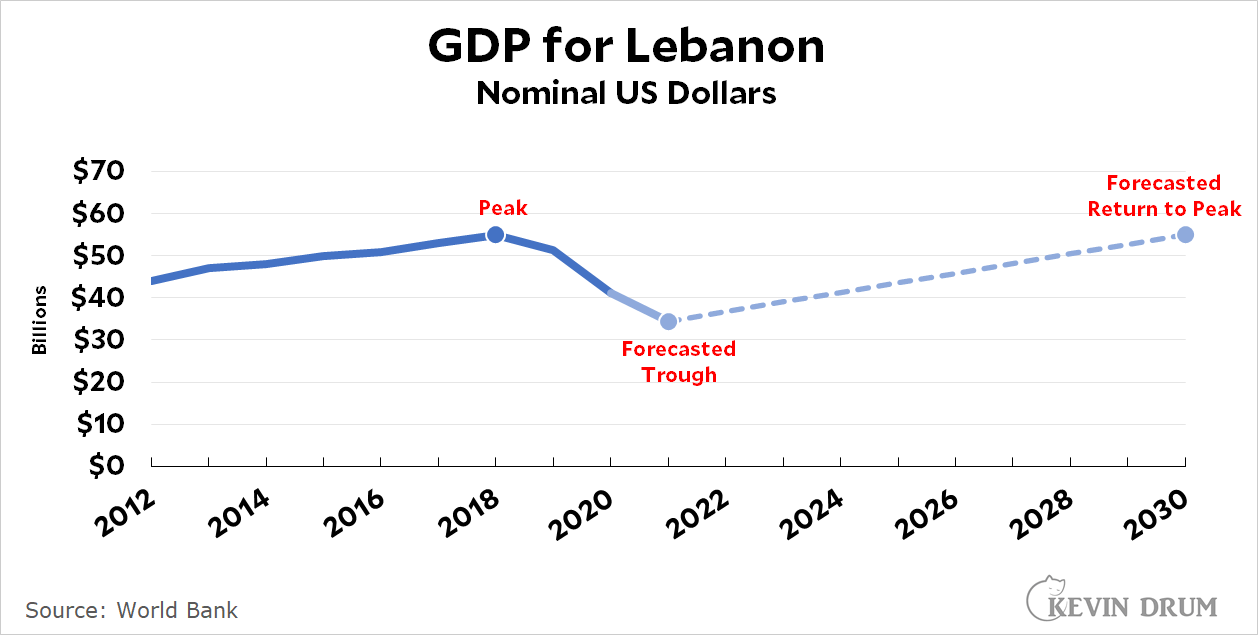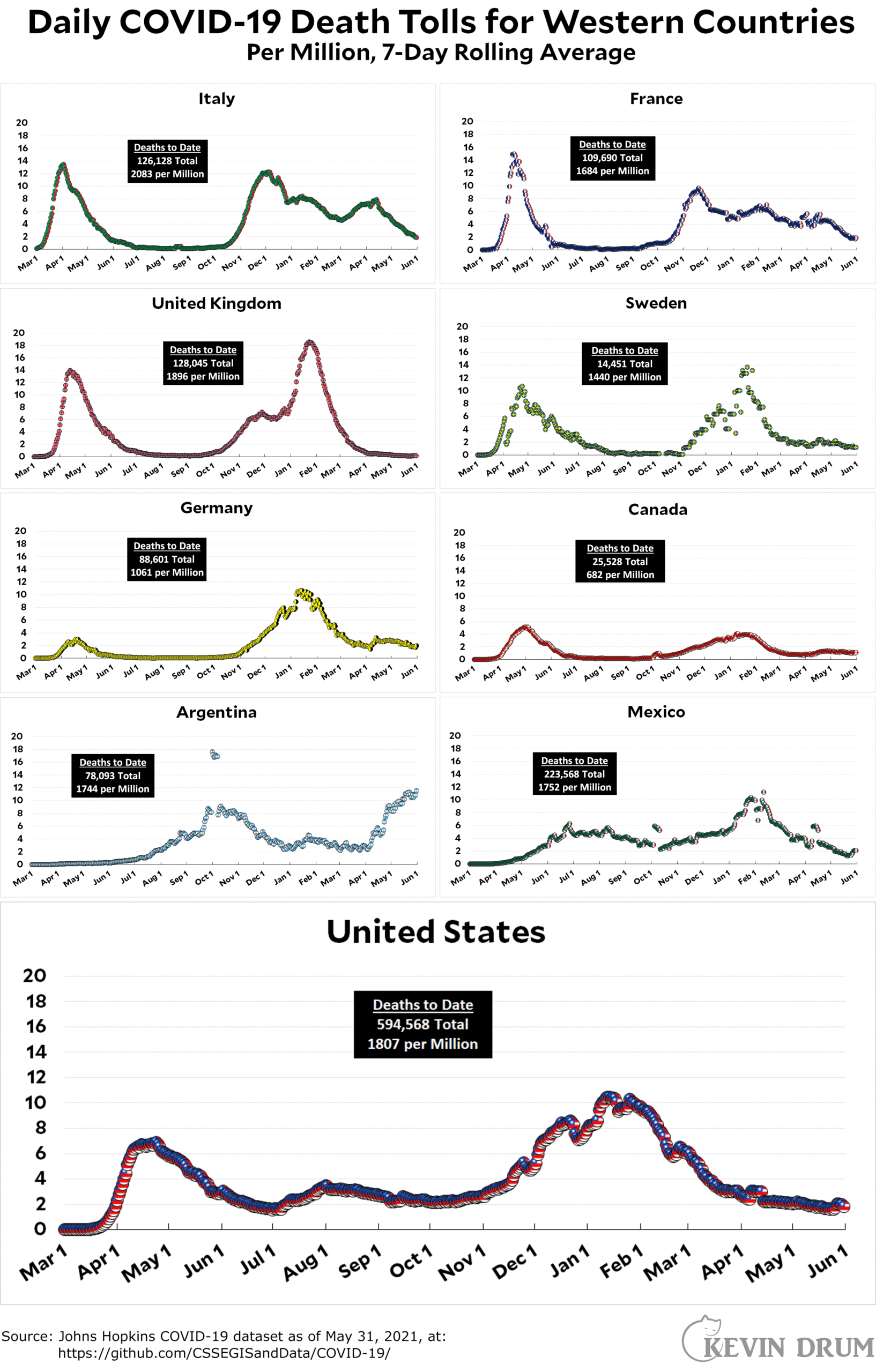In case you think things are going badly here, spare a thought for the poor folks of Lebanon:¹

This represents a GDP loss of about 35%, far greater than the US suffered during the Great Depression. Inflation is running at about 100%, the banking system is in about the shape you'd expect, and unemployment is sky high.
This all comes from the World Bank, which refers to this as a deliberate depression because Lebanon's leaders are deliberately not doing anything about it:
In the Fall 2020 LEM, Lebanon’s economic crisis was termed The Deliberate Depression. For over a year, Lebanese authorities encountered an assailment of compounded crises—namely, the country’s largest peace-time economic and financial crisis, COVID-19 and the Port of Beirut explosion—with deliberately inadequate policy responses. The inadequacy is less due to knowledge gaps and quality advice and more the result of a combination of (i) a lack of political consensus over effective policy initiatives; and (ii) political consensus in defense of a bankrupt economic system, which benefited a few for so long.
In other words, no one can agree about what to do, and lots of powerful people want to do nothing because they benefit from the current corrupt system even during a depression.
And now for the clickbait. Carmen Reinhart and Kenneth Rogoff, the reigning experts on episodes of economic collapse, use a formula called CSI to calculate how severe a depression is. It's pretty simple: just take the percentage GDP decline from peak to trough and add it to the number of years it takes to get back to the previous peak. Under this accounting, for example, the CSI for the Great Depression in the United States was 38 (a 28 point decline + 10 years for GDP to recover.
The World Bank's forecast is that Lebanon will suffer a GDP decline of 35% and it will take 12 years to recover. This gives them a CSI of 47, which would be the second biggest CSI since World War II and the sixth worst ever.
But that's the "good" scenario. The bad scenario is a GDP decline of 38% and 19 years to recovery, which produces a CSI of 57. This would be the worst since World War II and the third worst ever.
There's no real point to make here. I just thought you might be interested. Just think: possibly the worst depression since World War II and Lebanon's leaders are twiddling their thumbs and figuring it's better than the alternative, which might end up affecting them. It sure makes our political gridlock look penny ante.
¹Don't assume these numbers are absolutely precise. The World Bank seems incapable of proofreading its own reports and press releases, so I had to decide which of its various figures to use.

